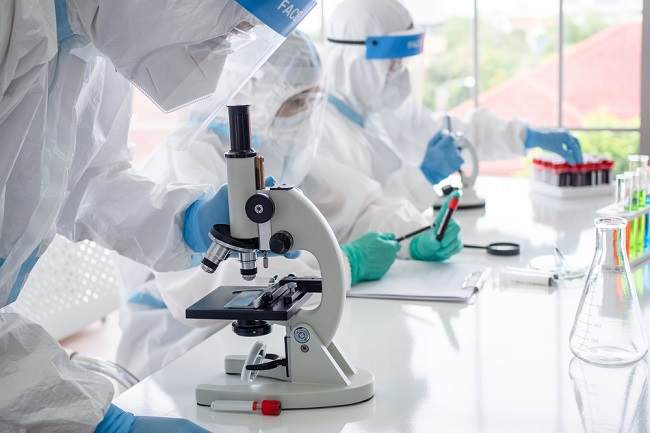When you hear the term plastic surgery or plastic surgery, you immediately associate it with the process of changing certain body parts to make them look more attractive. In fact, the branch of plastic surgery medicine has a wider scope, and even includes the function of reconstruction to repair damaged body shapes.
Plastic surgery itself is a branch of medical science that focuses on repairing body tissue or skin that is damaged or deformed due to certain conditions, such as burns, accidents, tumors, and congenital diseases. In addition to improving the shape of the body that is damaged or deformed, plastic surgery is also often done to change body parts to make them look more attractive (aesthetic needs).

To become a plastic surgeon, a general practitioner must undergo an education period of approximately 10 semesters. This long period of education makes the plastic surgeon profession still very rare in several countries, including Indonesia.
Types of Plastic Surgeon Subspecialty
Just like other medical sciences, plastic surgery is also divided into several subspecialties, which include:
- Burn consultantA plastic surgeon who specializes in treating patients with severe damage to body tissues and skin due to serious burns.
- Wound consultant and oncoplastyA plastic surgeon who specializes in wound management and tissue repair after surgical removal of tumors or cancer. For example, for breast reconstruction procedures after surgical removal of the breast due to cancer.
- Microsurgical consultant (microsurgery)A subspecialty of plastic surgery that focuses on performing surgical procedures with a special microscope on the nerves. This includes small blood vessels and nerves.
- External genitalia consultantA subspecialty of plastic surgery that focuses on improving the shape and function of female sexual organ tissue. For example, to improve the shape of the labia that are less symmetrical, repair the vagina (vaginoplasty), or reconstruct the hymen.
- Consultant facial surgeon (craniofacial)A subspecialty of plastic surgery that specializes in correcting facial deformities, for example due to congenital defects. Craniofacial consultant plastic surgeons have deep expertise in correcting the shape of the head, skull, face, neck, jaw, and other facial structures.
- Hand surgeon consultantA subspecialty of plastic surgery that focuses on surgery on the hands. Generally, this surgical procedure is performed to restore the function of the hands and fingers to their original state. Injuries, rheumatic diseases, infectious wounds, and congenital hand defects are some of the conditions that require this procedure.
- aesthetic consultantA subspecialty of plastic surgery that specializes in the surgery of certain body parts to make them look more attractive. The scope of this aesthetic surgery includes beautifying the eyebrows, eyelids, nose, dimples, chin, skin rejuvenation, and breast repair.
Procedures that Plastic Surgeons Can Perform
Here are some surgical procedures that are often performed by plastic surgeons:
- Tissue stretching procedures or tissue expansionThis procedure is done by loosening the skin tissue, thereby stimulating the body to grow new skin tissue quickly. This new and rapid growth of skin tissue is then used to help repair damaged or deformed body parts.
- Skin graft procedureThis skin graft procedure is done by taking healthy skin tissue on another part of the body, then transferring it to a damaged or deformed body part.
- Procedure flap surgerySimilar to a skin graft procedure, flap surgery takes living tissue from another part of the body along with its blood vessels, to transfer it to the damaged part of the body.
- Procedure microsurgeryThis procedure is a neurosurgical technique that uses a special microscope to repair nerves in damaged organs.
Meanwhile, for aesthetic plastic surgeons, they must be able to perform plastic surgery procedures that beautify the patient's appearance, such as:
- Enlarge or shrink breasts.
- Improve the shape of the protruding ears (otoplasty).
- Remove eye bags (blepharoplasty).
- Improve the shape of the nose (rhinoplasty).
- Get rid of cheek, chin, belly fat, buttocks and arms.
- Remove scars.
- Regrowth (restoration) of hair.
- Contours (curves) on the face, thighs, hips, and hands.
- Perform liposuction (liposuction).
- Tighten sagging facial skinface lift).
- Giving injection filler, for example filler nose.
Conditions Requiring Treatment by a Plastic Surgeon
Although plastic surgery tends to be associated with changing body shape to make it look more beautiful. However, not all plastic surgery is done for such things. There are also certain medical conditions that require plastic surgery, for example:
- Cancer, including skin cancer and breast cancer.
- Severe burns.
- The appearance of scars that interfere with the appearance or function of the body.
- Congenital abnormalities from birth, such as cleft lip.
- A physical injury that results in a damaged or disabled body part.
- Repair of damaged body parts due to the removal of cancerous tissue.
Usually, a plastic surgeon will perform a surgical procedure to restore the function of the damaged or deformed body part. Not only that, the plastic surgeon will also help repair damaged body parts so that they can look like they used to.
Plastic Surgery Risks
Like any other medical procedure, plastic surgery also carries a risk of complications. Here are some of the possible risks:
- Experiencing nerve damage and numbness.
- Infection in the operated body part.
- There are scars that don't go away.
- Easy to bleed after plastic surgery.
- Bruising or blood clots occur in the operated body part (hematoma).
- Side effects of the anesthetic used during surgery.
Meanwhile, for patients who have certain health problems, such as suffering from high blood pressure, diabetes, heart or lung disease, high cholesterol, and bleeding disorders or regularly using blood thinning drugs, more consideration is needed before undergoing plastic surgery procedures, because they can increase risk of complications.
In order to minimize the risk of complications after plastic surgery, you should pay attention to the following factors:
- Choose a plastic surgeon who has experience in this field.
- Change your lifestyle, such as quitting smoking.
- Expand the consumption of healthy foods, such as fruit and vegetables.
Keep in mind, plastic surgery procedures are surgical procedures that require quite a lot of money. Therefore, before doing plastic surgery, you should prepare yourself mentally and financially long ago. In addition, also consult with your plastic surgeon, regarding the comparison of the risks and benefits of plastic surgery that will be carried out.









